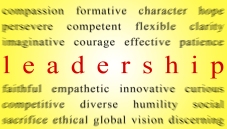Guest Blog
Connections Life Lessons: Leaders Share Their Stories
One of the greatest aspects of my career, education, and life in general has been meeting people. I love meeting people and getting to know their stories, what makes them tick and how they handle life challenges. I have met several leaders over the years and I want to give voice to their stories. Thus, I have asked a few of them to share their stories as part of my Connections blog. I will not set a schedule but will share these when I receive them. I hope that by sharing their stories, you get to know a great leader but also perhaps see a bit of your story in theirs. Perhaps we can learn from each other in this manner.
This guest blog is from someone who has already made tremendous strides in his professional career, having a successful stint at McKinsey and Company and years of Aon experience under his belt. Marquis Parker, an energetic, ambitious, and confident young leader, also has degrees from prestigious universities including Princeton and Stanford. With all the great things behind him, i expect even gather things ahead and am honored to post an excerpt from his blog “Amazing what one can learn in 10 years”. Since this is just an excerpt of a very well written blog, I encourage you to read and comment on the entire blog here.
If you would like to guest blog as part of this series, please contact me via twitter, LinkedIn, or by posting a comment on this blog.
Be Well. Lead On.
Adam
 Follow me on Twitter
Follow me on Twitter
Connect with me on Linked In
“Like” me on Facebook
——————–
Amazing what one can learn in 10 years
Marquis Parker (excerpts selected by Adam L. Stanley)

I originally started this blog to share my story as an MBA applicant, but, over the years, it morphed into something totally different. For the past few years, I’ve used this blog as a forum to answer questions from my readers as a way to share the learnings that I’ve acquired from stumbling through my education and career without having been taught the “right way” to do it all; I figure that I’ve already endured the bumps and bruises, so I should use that to keep others from having to do the same.
Below, I’ve provided my top 10 life lessons learned from my last 10 years of educational, professional, and real life experiences. Many of these items are somewhat basic in nature, but all of them were true revelations for me when they hit me and have helped me become the man that I am today.
1. Be thankful for what you’ve got
My advice here is that, no matter how dissatisfied you may be with your current situation (e.g., job, career path, financial standing), just remember that someone else could have it worse. If you hate your job, think about all of the folks who would kill to have any job at all. If you’d say that you’re not advancing quickly enough in your career, make sure to appreciate that you have a career at all…many recent grads would give anything to trade places with you and have a chance to start their careers. Lots of people complain about their homes, cars, clothes, possessions, etc., but I’d bet that they don’t think others who have lost everything or are barely hanging on in the aftermath of the economic crisis. It’s real out in these streets.
I’m not saying that you shouldn’t work hard and fight for what you really want…We all deserve the right to do that. That said, I would strongly encourage you to be thankful for what you have in the present when trying to build for the future. Keeping the proper perspective will be very helpful in truly appreciating advancements once you get them.
2. “Be ruthless with your time”
This is a holdover from my 2006 list of lessons after graduating from Stanford GSB. I took the quote from one of my favorite GSB professors, Jim Ellis, from a list of tips that he gave in our final ‘Managing Growing Enterprises’ session.
You’d be surprised at how quickly your time can be taken up by others and, next thing you know, you won’t be left with any for things that YOU need to prioritize, like getting your work done, spending time with the people who matter to you, and, most importantly, sleep/health. It took me a while before I realized that this had happened to me again, but, when I did, I made changes to follow Prof. Ellis’s advice and start being ruthless with my time. I started budgeting in time to hit the gym, spend more time with my peoples, run around out in the streets, and sometimes simply do nothing productive at all (which was a major change for me). It was GREAT and had a huge impact on my overall stress level.
If you take only one thing away from this list, I hope it is this point… It’s great to want to give of yourself to help everyone, do everything, and have impact everywhere, but, sometimes, you just need to focus on you and what you need. Time is a resource that is non-renewable. Make sure that you focus on being ruthless when it comes to yours.
3. Find an anchor for your confidence
I’m a firm believer that honing in on a few things that make a person distinctive/interesting/great is a bulletproof way to not only develop one’s confidence, but also to maintain it, even in the face of struggles or failure.
4. Optimize on building meaningful relationships, both personal and professional
Some may think that ‘connections‘ and ‘relationships‘ are the same, but I see them as separate ideas, with the latter being much more valuable.
Here’s how I think about it:
Connection: Being linked to a person in some manner, but not necessarily in a “deep” way; Similar to “having met” someone versus “knowing” that person; Can be established without having actually met or even spoken to a person; Connections can be established for any number of reasons, including being alumni of the same (or peer) academic institution, having worked for the same company, similar industry/functional/career interest, and mutual connections
Relationship: [Instead of defining this myself, I’ll rely on the one from Wikipedia] Strong, deep, or close association/acquaintance between two or more people that may range in duration from brief to enduring. This association may be based on inference, love, solidarity, regular business interactions, or some other type of social commitment; The distinction here is that the parties involved have put in work to move past simply being connected and toward really getting to know each other; Relationships provide a foundation for ongoing engagement and mutual benefit for both people
5. Treat your network like it has value…because it does!!!
This item ties directly into the previous one. Once one has developed a set of meaningful relationships, he/she will have the foundation for a diverse and potentially productive network, which would include friends, colleagues, associates, and acquaintances. These connections could lead to job opportunities, introductions to notable people, help/support in some kind of initiative, or any other of a long list of benefits. Due to what’s at stake, It is crucial to be thoughtful about how you manage and leverage your network because destroying/damaging it is much easier than developing it in the first place.
I’ve either experienced or heard of many instances where people have been unwise in interactions with folks in their networks, often resulting in permanent changes in how they are seen by those connections. Actions like flaking on scheduled phone calls, showing up late to meetings, not being prepared to have a meaningful discussion, being overly informal, taking a long time to respond to communications, and not following through on commitments can end up having lasting effects. In many of these cases, the person may not even realize that he/she did something improper, but, once the damage is done, it likely can’t be undone.
6. “Know when to hold ‘em…know when to fold ‘em”
Life is basically a series of gambles on a bunch of factors, like education, relationships, career, and health. Winning at the game of life requires getting enough wins in these individual gambles, whether it’s by being dealt a strong hand, using the right strategy, or blind luck. In other words, you should aim to handle those “gambles” in the best way possible in order to end up with the best overall result.
Anyone who plays poker knows that, in some games, you can end up with cards so good that you want to immediately raise your bet. In other games, your cards might be so iffy that the best move is to fold and get out of the hand. In the series of “gambles” that make up life, it is sometimes best to “lay down your cards” and exit a given situation.
7. Be open to accepting feedback AND be willing to give it
According to the Merriam-Webster dictionary, feedback is defined as “helpful information or criticism that is given to someone to say what can be done to improve a performance, product, etc.“…in other words, feedback is supposed to be seen as a good thing. If asked, most people would probably describe themselves as feedback-seeking and then go on list the many benefits associated with it. But, in reality, when comments that aren’t necessarily glowing come their way, a lot of people are quick change their tunes. Having lived and worked in a few feedback-heavy environments, I have quite a few thoughts on the topic.
8. Recognize that it’s OK to have a chip on your shoulder as long as it serves as motivation to achieve more
I’ll start by acknowledging that many people will disagree with this item and may see me as spreading a negative message, likely due to the negative connotation of having a chip on one’s shoulder. Some assume that it is an indicator of a person being quick to argue or to see someone else as doing him/her wrong (whether justified or not). I choose to view it differently.
I understand that some people with chips on their shoulders end up bringing negativity with them wherever they go, but it doesn’t always have to be that way. What about the instances where a person uses it as a push to aim higher than he/she would have otherwise? Or, what about it being a way for someone to motivate him-/herself to overcome perceived roadblocks on the road to success? I’d argue that this can be a win if done productively.
9. Don’t be afraid to go for the “Hail Mary“
Some you may have heard of the term Big Hairy Audacious Goal, which is a similar concept, but what I’m referring to here is different. If something is a goal, the implication is that one has thought about it thoroughly beforehand and *hopefully* develops a methodical plan to achieve it. With the Hail Mary, I’m talking about making an attempt to do something that seems so far away from being possible that it wouldn’t even qualify as a valid goal. It’s like taking the idea of a “stretch goal” and stretching it so far that it sort of doesn’t even make sense. Feel me?
10. Remember that everyone deserves a chance to win
From what I’ve seen, one of the biggest factors in achieving success is simply having a legitimate chance to do so. There is a school of thought that says anyone can find an opportunity if he/she is willing to work hard, sacrifice, be flexible, etc. in order to make it happen. For many in our society, that school of thought is just plain wrong and, sadly, that’s just the way of the world. I believe that it is up to those of us who have found some measure of success to recognize this fact and do what we can to help these folks get their shot.
Looking back over the above list, I can’t help but be amazed at how much life experience can teach a person over time. It isn’t always easy to see those lessons as positives instead of setbacks, but time has a way of providing the right kind of perspective.
Of course, many items in my list seem basic to many of you, but, for a guy who didn’t really get these things until his late 20s and the first half of his 30s, they were literally life-changing. Also, folks tend to assume that it’s been an easy road for me because of what I’ve accomplished, but that couldn’t be further from reality. So, it’s refreshing to think back and realize what hard work, sacrifice, and the hustle has made possible for a scraggly little dude from the country (VA represent!).
About the Author:
Marquis Parker is a business leader, coach, advisor, mentor, and award-winning blogger on topics of MBA student life and admissions, careers, and business concepts. He has experience in formulating strategies and analyzing mission critical issues for companies ranging from government and public sector entities to global private sector organizations. Throughout his career, he has acquired a broad set of educational and career experiences grounded in Business Operations, Strategy, Technology, Private Equity, and Education. In addition, Marquis has served as an advisor and/or Board member to several small businesses and non-profit organizations, including InstaSafe, McRae’s Foods, The Friends of Sinai Children’s Hospital, and Higher Praise Ministries.
Currently, Marquis is a Vice President of Strategic Projects for the U.S. division of Aon Affinity, which specializes in developing, marketing, and administering customized insurance programs and specialty market solutions for affinity organizations and their members or affiliates. Also, for the remainder of 2013, he is serving a secondary role as a Vice President of Global Operations for Aon Broking, which integrates the insurance broking infrastructure of Aon Risk Solutions across its retail, wholesale, and specialty businesses in 120 countries. Since joining Aon plc, a $12B provider of risk management, reinsurance, and human capital advisory services, in 2010, he has held leadership roles in strategy and business operations in 3 of its 4 operating business units, including a stint as a Vice President on the “special projects” team for Aon’s Chairman and Chief Executive Officer.
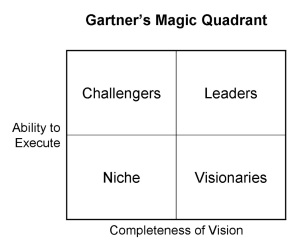 Hello. My name is Adam Stanley and I have a problem. I get excited by new technology. All the time. Well, I guess that’s not really the problem. The problem is that I get bored by the constant debates about which is better. And, with all due respect to Gartner, the technology quadrants REALLY bore me.
Hello. My name is Adam Stanley and I have a problem. I get excited by new technology. All the time. Well, I guess that’s not really the problem. The problem is that I get bored by the constant debates about which is better. And, with all due respect to Gartner, the technology quadrants REALLY bore me.



 Empowerment: People must be allowed to make decisions and drive change without being micromanaged and without needing to get multiple approvals; they must be allowed to be leaders. Just as importantly, we must enable those whom we empower. Power without training is not a formula for success. Empowerment is about giving a person the ability to manage something tangible that adds value, but also about working with that individual to help him or her succeed.
Empowerment: People must be allowed to make decisions and drive change without being micromanaged and without needing to get multiple approvals; they must be allowed to be leaders. Just as importantly, we must enable those whom we empower. Power without training is not a formula for success. Empowerment is about giving a person the ability to manage something tangible that adds value, but also about working with that individual to help him or her succeed.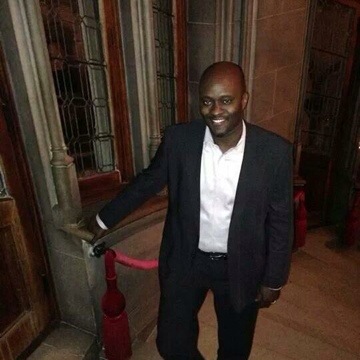
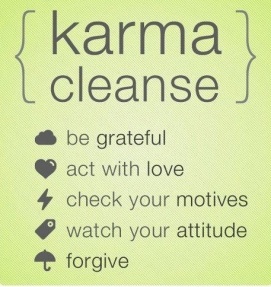




 I met someone this afternoon with whom I truly felt an immediate connection. It was scheduled to be a “career conversation” but instead was an open introduction, over tea, and very casual. The conversation reminded me of a question someone asked me recently: “How can I get better at networking like you?” Those who truly know me realize just how much this question disturbs me. But to many, this would be considered flattery. I do not consider it so at all.
I met someone this afternoon with whom I truly felt an immediate connection. It was scheduled to be a “career conversation” but instead was an open introduction, over tea, and very casual. The conversation reminded me of a question someone asked me recently: “How can I get better at networking like you?” Those who truly know me realize just how much this question disturbs me. But to many, this would be considered flattery. I do not consider it so at all.






 Newt Gingrich, former Speaker of the House of Representatives, said, “Perseverance is the hard work you do after you get tired of doing the hard work you already did.”
Newt Gingrich, former Speaker of the House of Representatives, said, “Perseverance is the hard work you do after you get tired of doing the hard work you already did.” 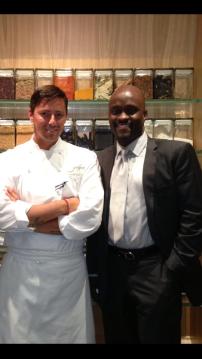

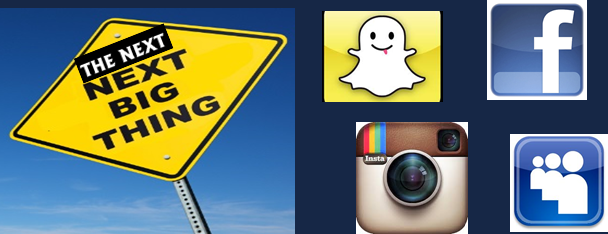
 Follow me on
Follow me on 

